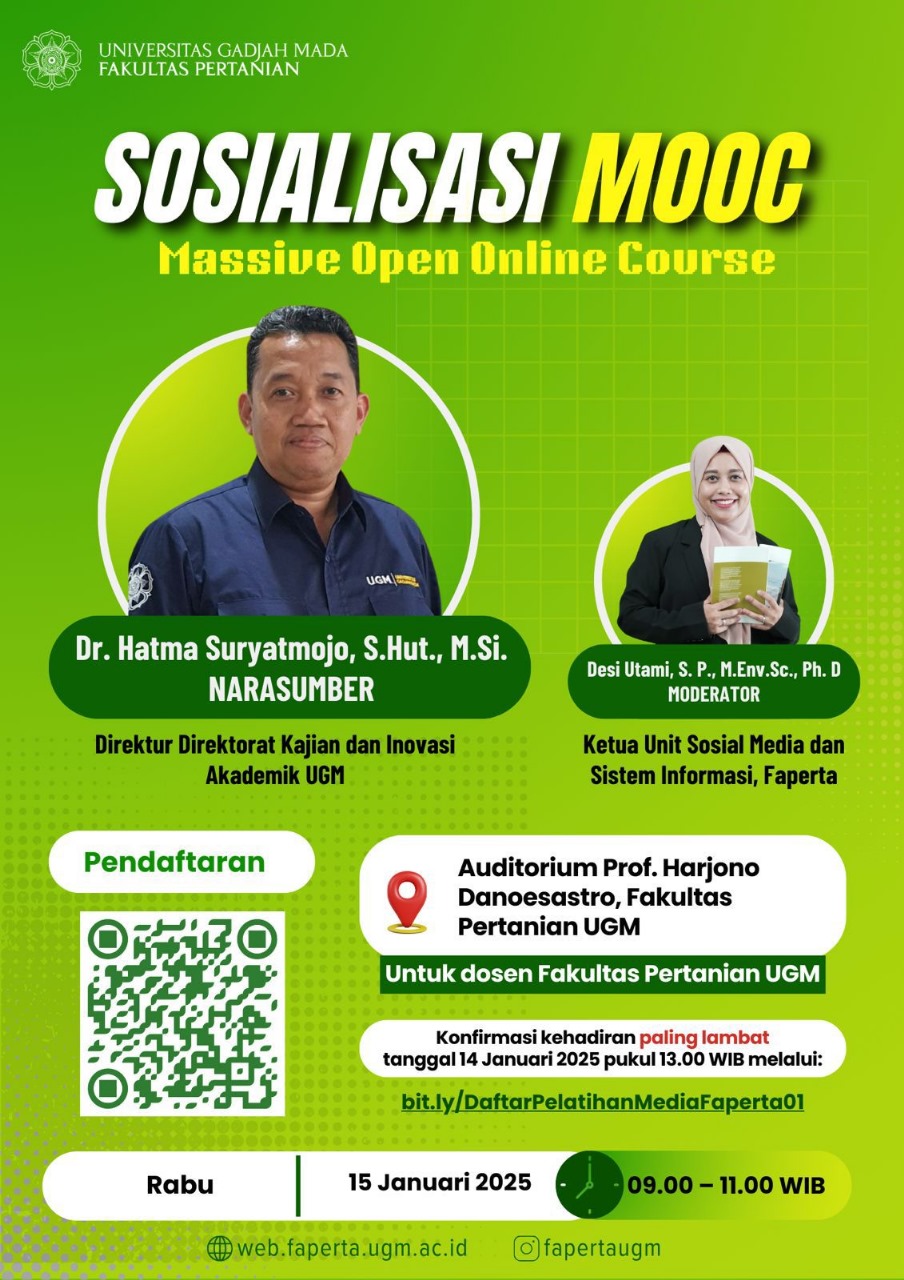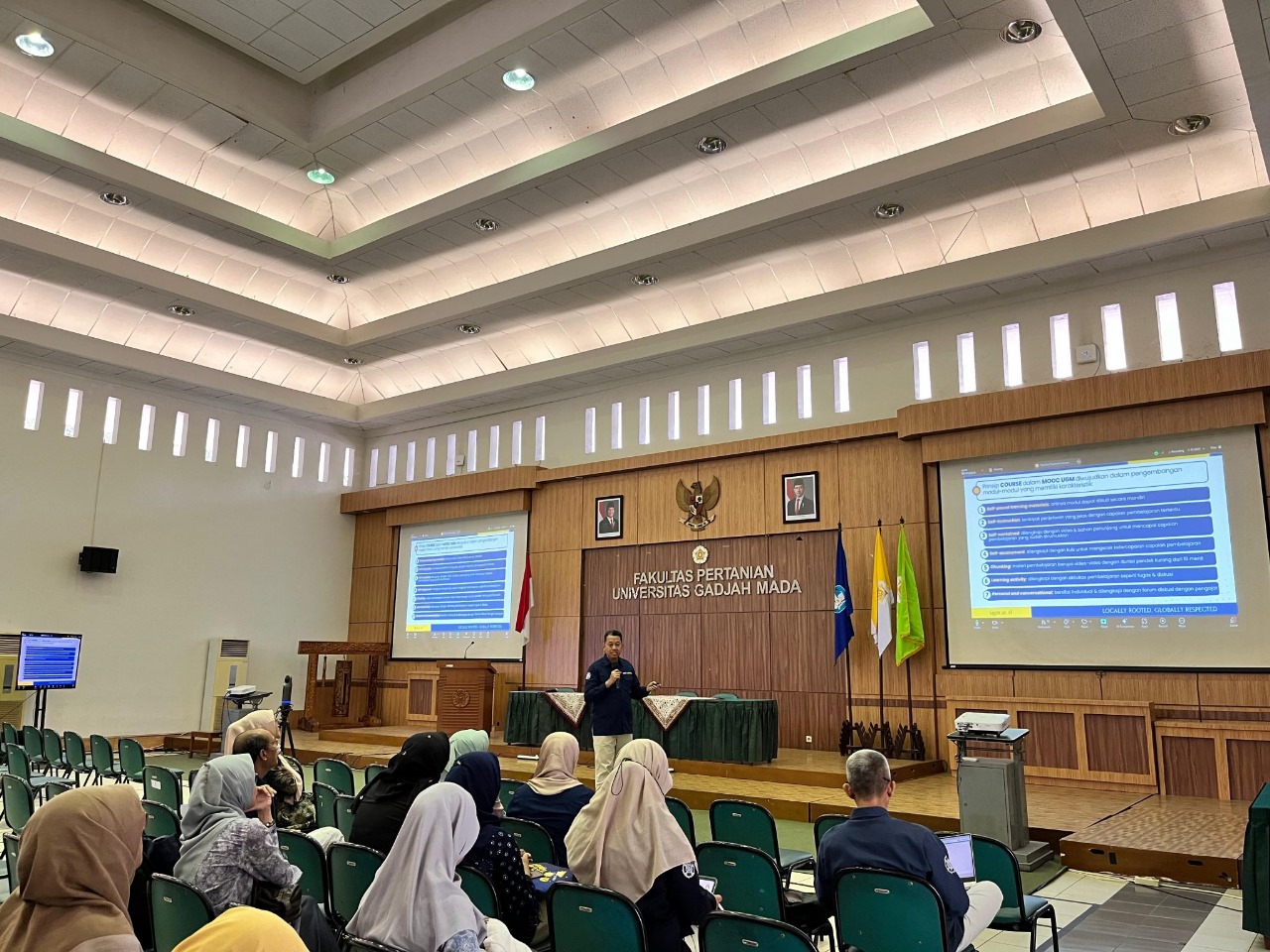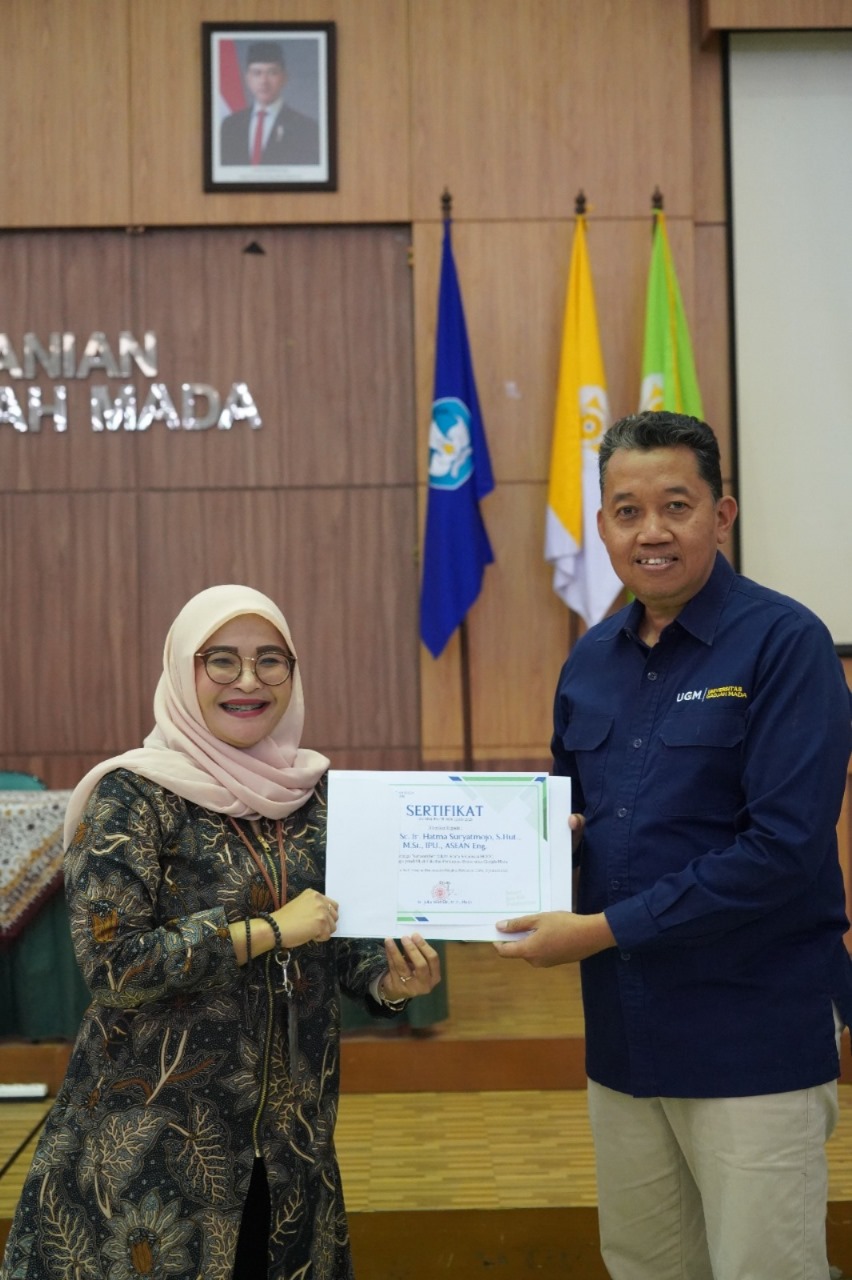
On Wednesday, 15 January 2025, the Faculty of Agriculture at Universitas Gadjah Mada (Faperta UGM) held a socialization event on the Massive Open Online Course (MOOC) from 09.00 to 11.00 AM at the Prof. Harjono Danoesastro Auditorium. The event was moderated by Desi Utami, S.P., M.Env.Sc., Ph.D., a head of Information System and Media Unit, Faperta UGM and featured Dr. Hatma Suryatmojo, S.Hut., M.Si., Director of the Directorate of Academic Innovation and Studies at UGM, as the main speaker.
This session was specifically aimed at faculty members of Faperta UGM and focused on introducing UGM Online as a platform for professional development and teaching skill enhancement. It also addressed UGM’s commitment to inclusivity by opening opportunities for the public to access and participate in learning processes alongside UGM lecturers through the UGM Online platform.

Dr. Hatma Suryatmojo emphasized that this initiative aligns with the university’s goal of embracing micro-credentials, stating that UGM must now fully integrate micro-credentials into its learning systems. “MOOC is essential to be pursued at UGM because micro-credentials support flexible learning, address labor market challenges, expand access to education, increase the university’s competitiveness, and strengthen collaborations with industries and government,” he explained.

He also elaborated on various aspects of MOOC, particularly its benefits in enhancing teaching competencies in the digital era. Lecturers at Faperta UGM were encouraged to view MOOC as an effective medium for delivering course materials and engaging with the broader public.
Dr. Dyah Weny Respatie, S.P., M.Si., Vice Dean for Academic and Student Affairs, added that faculty members are welcome to utilize faculty grant programs and collaborate with the Faperta Media Team for assistance in video content production.
This initiative reflects Faperta UGM’s commitment to developing innovative and adaptive education in response to the evolving demands of higher education, especially in the context of increasing reliance on information technology. Moreover, this activity demonstrates the faculty’s support for Indonesia’s Sustainable Development Goals (SDGs), particularly SDG 4 (Quality Education), SDG 8 (Decent Work and Economic Growth), SDG 9 (Industry, Innovation, and Infrastructure), SDG 10 (Reduced Inequalities), and SDG 17 (Partnerships for the Goals).
Author: Rani Nur Rochim, Ghorizatu Shofra
Editor: Desi Utami
